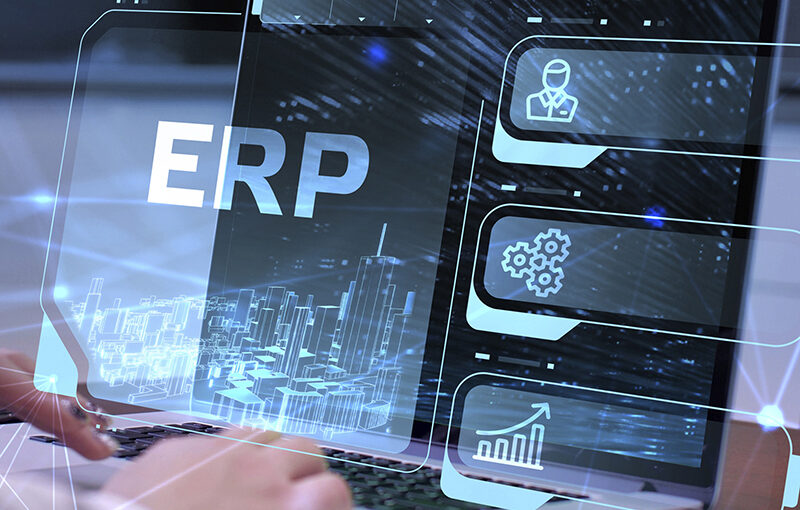Artificial Intelligence and ERP Systems Revolutionizing the Plastic Industry in Malaysia The plastic sector in Malaysia has recently been experiencing a major structural change, which is the result of the initiation of the latest technologies that include artificial intelligence (AI) and Enterprise Resources Planning (ERP) systems. In fact, the use of these innovations is changing the way organizations run their operations, making them more efficient, and thus mitigating pressure on the environment. The use of AI bots in the plastic industry is not just a fad, but it is the […]
Toys in Malaysia: Technology Revolution The toy industry in Malaysia has shown a staggering metamorphosis over the past few years; this has greatly been fueled by the application of robotics, the Internet of Things (IoT), and enterprise resources planning (ERP) systems that have come to the fore. The very utilization of such technologies is fundamentally changing the way toys are conceived, manufactured, and distributed, thus launching a new age of creativity and productivity. The integration of AI agents in toy production is the paradigm shift in the sector. Not only […]
Rubber Industry in Malaysia: AI and ERP Systems for a Sustainable Future Malaysia’s rubber industry is going through a remarkable evolution, mainly because of the incorporation of high-tech facilities such as the AI and ERP systems. As a result, the use of these technologies has created a different operational design for firms, making them efficient programming, and environmental protectionism. AI and ERP Systems: A New Era for Rubber Manufacturing The utilization of AI agents and ERP systems in the rubber sector has been transformative for enterprise resources planning. These technologies […]
In recent years, the electronics industry in PJ, Petaling Jaya, Malaysia has witnessed a dynamic transformation. This transformation is largely due to the adoption of advanced technologies such as AI and ERP systems. As the industry evolves, it becomes imperative to realize the critical role that AI and ERP systems play in streamlining operations, enhancing productivity, and fostering innovation.
In recent years, the electronics industry in PJ, Petaling Jaya, Malaysia has witnessed a dynamic transformation. This transformation is largely due to the adoption of advanced technologies such as AI and ERP systems. As the industry evolves, it becomes imperative to realize the critical role that AI and ERP systems play in streamlining operations, enhancing productivity, and fostering innovation.
In the bustling business landscape of Penang, Malaysia, industries are continuously evolving and adapting to technological advancements. Among these industries, the toy industry has experienced significant transformation due to the integration of Artificial Intelligence (AI) and Enterprise Resource Planning (ERP) systems. These sophisticated business software solutions are revolutionizing the way toy manufacturers and distributors operate, boosting efficiency and fostering innovation.
In the rapidly evolving technology landscape of Penang, Malaysia, the electrical appliances industry is experiencing a significant transformation. The integration of artificial intelligence (AI) and warehouse management systems (WMS) is driving this evolution, bringing unprecedented efficiency and innovation to the sector. With a focus on the dynamic blend of AI and WMS, we explore how Penang, Malaysia’s electrical appliances industry is leveraging business software to stay ahead of the curve.
In today’s fast-paced world, the Engineering and Manufacturing (E&M) industry in Penang, Malaysia is on the brink of a significant transformation. With the advent of Artificial Intelligence (AI) and Enterprise Resource Planning (ERP) systems, businesses are embracing technology to stay competitive. This blog aims to explore how AI and ERP solutions are revolutionizing the E&M industry in Penang, Malaysia.
In today’s fast-paced world, the Engineering and Manufacturing (E&M) industry in Penang, Malaysia is on the brink of a significant transformation. With the advent of Artificial Intelligence (AI) and Enterprise Resource Planning (ERP) systems, businesses are embracing technology to stay competitive. This blog aims to explore how AI and ERP solutions are revolutionizing the E&M industry in Penang, Malaysia.
ERP Tech and AI: Tear Down Malaysia Palm Oil Industry The technology sector is turning over a new leaf, and with the buddying of AI agents and ERP systems, firms from all over the world are undergoing a dramatic transformation. Malaysia’s palm oil industry, which is one of the biggest producers in this business, is also on the move. The fact is, the implementation of artificial intelligence and enterprise resources planning is bringing in digital transformation that literally changes the way firms carry out their operations, from plantation to production. […]
AI and ERP Systems: Modernizing Enterprise Resource Planning in Malaysia Artificial intelligence integration is growing the obsolete world of enterprise resources planning. Electronic data interchange is not only a result but also a contributory factor towards digital transformation. Malaysia, the forever expanding entrepot trade hub is reaping the benefits of the widespread application of AI agents and ERP systems. In fact, the interplay between AI and ERP is disseminating efficiency and productivity to all enterprises. To top it all, the launch of GenAI and DeepSeek by OpenAI is not only […]
The Impact of AI in ERP Systems on Malaysia’s Business Landscape The business sector is constantly changing, and the incorporation of AI agents and ERP systems into business models are the main reasons behind this. Malaysia, as a fast-growing technological startup is extensively welcoming enterprise resources planning solutions. AI and ERP systems that are in a joint venture are being disruptive within the scope of run-of-the-mill sales and online shopping. AI Agents and ERP Systems: A New Era for Malaysian Companies Artificial intelligence agents in Malaysia are reshaping the way […]
AI Agents Transforming ERP Systems in Malaysia’s Toy Sector In the dynamic area of Malaysia’s toy industry, integration of AI agents into ERP systems is altering the way firms handle their daily schedule. Actually, AI adoption in enterprise resource planning is not merely a trend but a key requirement for firms that plan to maintain their competitive edge. AI agents are driving the efficiency of ERP systems, thereby enabling better resources management and process streamlining. The insertion of AI into ERP systems mainly comes in handy for controlling complex functions […]
AI Agents and ERP Systems: Transforming Malaysian Textile Industry AI agents along with ERP systems have become an important tool for industries across the globe and the textile industry in Malaysia is no exception. The convergence of artificial intelligence and enterprise resources planning, in fact, is increasingly being seen as the crucial factor for the firms to be able to keep their position in the market amidst fluctuating circumstances. AI and ERP technologies have become the driving force behind the digital transformation in the textile industry in Malaysia . These […]
AI Agents and ERP Systems: Revolutionizing the Rubber Sector in Malaysia Through the years, the reconciliation of AI agents into ERP systems has been a pivotal force for the industries across the globe. Likewise, the Malaysian rubber industry that has been a leading player, has not been excluded. The adoption of artificial intelligence and enterprise resources planning is redefining the way firms carry out their operations, starting from material requirements planning (MRP) all the way to by-product management. Currently, the rubber industry of Malaysia is experiencing a huge metamorphosis. With […]
In recent years, the electronics industry in PJ, Petaling Jaya, Malaysia has witnessed a dynamic transformation. This transformation is largely due to the adoption of advanced technologies such as AI and ERP systems. As the industry evolves, it becomes imperative to realize the critical role that AI and ERP systems play in streamlining operations, enhancing productivity, and fostering innovation.
In the fast-paced world of technology, the integration of Artificial Intelligence (AI) and Enterprise Resource Planning (ERP) systems is revolutionizing industries globally, and the toy industry in KL, Kuala Lumpur, Malaysia is no exception. KL, Kuala Lumpur, Malaysia has always been a hub for innovation, and the adoption of AI and ERP business software is setting new standards in efficiency and productivity.
The KL, Kuala Lumpur, Malaysia electrical appliances industry is experiencing a transformation like never before. As advancements in technology continue to accelerate, AI and business software are playing pivotal roles in reshaping the sector. With the integration of business software solutions, such as AI-powered operational tools, companies in KL, Kuala Lumpur, Malaysia are moving towards more efficient, data-driven decision-making processes.
The KL, Kuala Lumpur, Malaysia textile industry, long a cornerstone of the nation’s economy, is experiencing an incredible transformation through the integration of AI and partnerships with global giants like Amazon. As the industry evolves, business software plays a central role in streamlining operations, enhancing productivity, and enabling more effective decision-making. This is not just an industry pivoting for survival; it’s a leap into a more intelligent and efficient future.
The automotive industry in KL, Kuala Lumpur, Malaysia is experiencing a significant transformation due to advanced AI technologies, spearheaded by initiatives similar to Singapore’s Economic Development Board (EDG). Being one of the most innovative cities in the world, KL, Kuala Lumpur, Malaysia has embraced AI to drive its automotive sector forward. By leveraging AI, the KL, Kuala Lumpur, Malaysia automotive industry is paving the way for smarter, more efficient, and sustainable transportation solutions.
In the bustling landscape of KL, Kuala Lumpur, Malaysia, the toy industry has experienced a notable transformation over the years. The infusion of Artificial Intelligence (AI) and Point of Sale (POS) systems into business operations has not only optimized efficiency but also dramatically enhanced the customer experience. This synergy between cutting-edge technology and business software is reshaping the toy market in significant ways.
In recent years, the electronics industry in PJ, Petaling Jaya, Malaysia has witnessed a dynamic transformation. This transformation is largely due to the adoption of advanced technologies such as AI and ERP systems. As the industry evolves, it becomes imperative to realize the critical role that AI and ERP systems play in streamlining operations, enhancing productivity, and fostering innovation.
The rubber industry is one of the key sectors driving the economy of KL, Kuala Lumpur, Malaysia. With advancements in technology, the integration of Artificial Intelligence (AI) and Enterprise Resource Planning (ERP) software has revolutionized the rubber manufacturing processes. The implementation of AI and ERP software in the KL, Kuala Lumpur, Malaysia rubber industry has not only optimized production but also improved business operations efficiency.
In the heart of Southeast Asia, the PJ, Petaling Jaya, Malaysia rubber industry stands as a significant player on the global stage. With advancements in technology, particularly in artificial intelligence (AI) and Customer Relationship Management (CRM) systems, the industry is poised for rapid transformation. Throughout this blog, we will explore how the integration of AI and CRM systems can revolutionize the rubber industry in PJ, Petaling Jaya, Malaysia, making it more efficient, customer-centric, and competitive.
In the bustling tech hub of Southeast Asia, KL, Kuala Lumpur, Malaysia is not only known for its robust economy and modern infrastructure but also for its rapid advancements in business software, particularly in the plastics industry. With a growing emphasis on AI and CRM software, the KL, Kuala Lumpur, Malaysia plastics industry is experiencing rapid changes and improvements that are reshaping the way businesses operate.
The metal industry in KL, Kuala Lumpur, Malaysia has always been a cornerstone of the nation’s economy. However, in recent years, the integration of artificial intelligence (AI) and point-of-sale (POS) software has brought about unprecedented changes. This blog explores how AI and POS software are transforming KL, Kuala Lumpur, Malaysia’s metal industry, making it more efficient and competitive on a global scale.
The plastics industry in PJ, Petaling Jaya, Malaysia has been steadily growing, thanks to the relentless efforts of businesses embracing technological advancements. One of the most significant developments in recent times is the integration of AI-powered POS (point of sale) systems. This revolution in business software is not just transforming how companies operate, but also setting a new benchmark for efficiency and decision-making in the industry.
Penang, Malaysia’s hospitality and leisure industry has long been a beacon for tourists and business travelers alike. Given the rapid technological advancements, particularly in the realm of artificial intelligence (AI), the industry is poised for further transformation. Integrating AI technologies within the industry has become increasingly essential, which elevates operational efficiency and enhances the overall guest experience.
In recent years, the integration of Artificial Intelligence (AI) and Enterprise Resource Planning (ERP) systems has made significant strides in the KL, Kuala Lumpur, Malaysia hospitality and leisure industry. The transformation is nothing short of spectacular, enhancing operational efficiency, guest experiences, and profitability. Business software has become a cornerstone, playing a pivotal role in pushing the boundaries of what’s possible. But what exactly is driving this transformation, especially in a bustling hub like KL, Kuala Lumpur, Malaysia? Let’s dive in!
In recent years, the evolution of information and communication technology (ICT) in KL, Kuala Lumpur, Malaysia has been nothing short of phenomenal. As part of its Smart Nation initiative, KL, Kuala Lumpur, Malaysia has embraced cutting-edge innovations to revolutionize its digital landscape. Two key elements of this transformation are the integration of artificial intelligence (AI) and the adoption of the Pan-European Public Procurement On-Line (PEPPOL) standards. Integral to this technological ecosystem is business software, which serves as the backbone of corporate functionality. In this blog, we will explore how AI and PEPPOL are reshaping KL, Kuala Lumpur’s ICT industry, particularly in the realm of business software.





























